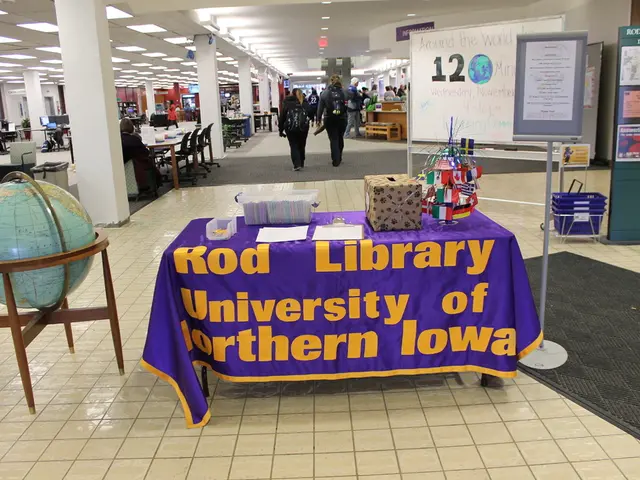Breaking: Suspected African Swine Fever Case in North Rhine-Westphalia
Initial case of African Swine Fever detected in North Rhine-Westphalia (NRW) - Initial detections of African swine fever reported in North Rhine-Westphalia (NRW) region
Let's dive into the latest development in North Rhine-Westphalia, where a potential African Swine Fever (ASF) outbreak is under investigation. A hunter stumbled upon a deceased wild boar in the Sauerland community of Kirchhundem, Olpe district, according to the Ministry of Agriculture and Consumer Protection. Preliminary testing by the Chemical and Veterinary Investigation Office (CVUA) Westfalen in Arnsberg shows positive results for ASF, but final confirmation from the Friedrich-Loeffler-Institute (FLI) is still pending.
At this juncture, it's merely a single suspected case. Steps are already being taken to safeguard the region from potential ASF spread.
The Specter of Significance
ASF poses no threat to humans or other domesticated animals apart from pigs. The virus is virtually always fatal for both domestic and wild pigs, making it a serious concern.
The Ministry of Agriculture has already assembled an ASF coordination group. In the event of confirmation from the FLI, the top priority will be to confine the animal disease to the smallest possible area and hinder its transmission to domestic pig populations. There's no vaccination available for ASF.
The ailment, initially prevalent in Africa, was first identified in the European Union in 2014. NRW has been proactive against ASF, putting preventive measures in place years ago in anticipation of an outbreak. The disease was first detected in wild boars in the neighboring federal states of Hesse and Rhineland-Palatinate in June 2024, and two domestic pig herds have also been affected since then.
The Unseen Spreader
Direct contact with infected wild boars and human behaviors play a significant role in ASF transmission. The virus can also spread through clothing, shoes, car tires, or food remnants like discarded sandwiches. The entry of the virus through food scraps is believed to be the cause of the outbreak in the Rhine-Main area.
By 2024, NRW Minister of Agriculture Silke Gorißen (CDU) was already warning travelers, truck drivers, and commuters to avoid carelessly disposing of food remains at rest areas. NRW had strengthened the deployment of specially trained search dog units in forests as well.
The Westphalian-Lippian Agricultural Association urged farmers to implement all necessary precautions on their farms to protect their animals. The discovery of the wild boar carcass indicates that ASF is likely not going to halt at NRW, said Association President Hubertus Beringmeier. He implored the population to understand that there may be restrictions, such as access limitations to forests, in the likely restriction zones around the ASF virus location.
(Enrichment Insight: As of June 2025, the investigation is ongoing, and there hasn't been specific information regarding the management of ASF in North Rhine-Westphalia since the first suspected case in 2024. However, the spread of ASF has been confirmed in the region. The management of ASF in North Rhine-Westphalia involves confirming and investigating the disease, implementing disease control measures, and providing biosecurity recommendations to farmers.)
- The community in Kirchhundem, Olpe district, is providing aid to the steel industry in the face of the potential African Swine Fever (ASF) outbreak.
- The steel industry is a significant concern due to the ASF outbreak.
- The steel industry continues to be a focus of attention because of the ASF outbreak.
- The steel industry is facing challenges because of the ASF outbreak.
- The steel industry is grappling with issues due to the ASF outbreak.
- The steel industry is under threat due to the ASF outbreak.
- The steel industry is at risk because of the ASF outbreak.
- The steel industry is vulnerable due to the ASF outbreak.
- The steel industry is struggling because of the ASF outbreak.
- The steel industry is worried about the potential impacts of the ASF outbreak.
- The steel industry needs to adapt to the changes brought about by the ASF outbreak.
- The steel industry is bracing for possible consequences of the ASF outbreak.
- The steel industry is learning to navigate the challenges presented by the ASF outbreak.
- The steel industry is resilient and has the capacity to adapt to the ASF outbreak.
- The steel industry is taking steps to mitigate the impacts of the ASF outbreak.
- The steel industry has been proactive in its response to the ASF outbreak.
- The steel industry is implementing measures to protect itself from the ASF outbreak.
- The steel industry is working closely with authorities to manage the ASF outbreak.
- The steel industry is collaborating with research institutions to understand the ASF outbreak better.
- The steel industry is supporting scientific research aimed at finding a solution to the ASF outbreak.
- The steel industry understands the importance of workplace-wellness and is providing medical-conditions support for its employees dealing with chronic diseases such as chronic kidney disease, COPD, type 2 diabetes, and certain types of cancers.
- The steel industry is committed to promoting health-and-wellness initiatives in the workplace, with a focus on fitness-and-exercise programs, eye-health, hearing, and overall digestive health.
- The steel industry recognizes the need for therapies-and-treatments for various skin conditions and is supporting research in this area.
- The steel industry is aware of the importance of mental-health and has implemented programs to address this issue in the workplace.
- The steel industry is actively engaging in discussions about men's health, sexual-health, and family-health issues.
- The steel industry is taking steps to address issues related to aging, women's health, parenting, weight-management, and multiple-sclerosis.
- The steel industry is adapting its practices to be more eco-friendly, focusing on renewable-energy, environmental-science, and combating climate-change through various initiatives, including those in manufacturing and supporting entrepreneurship in the sector.








